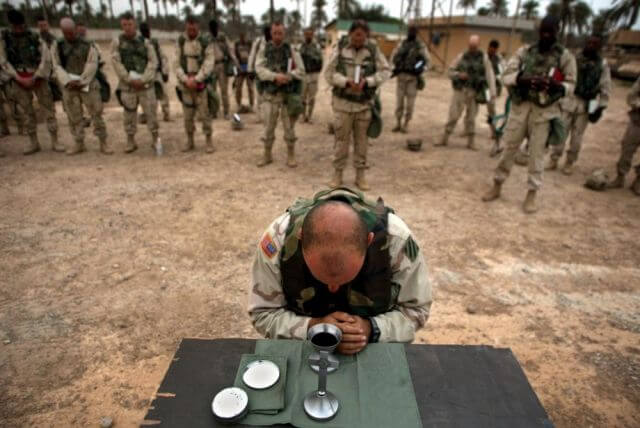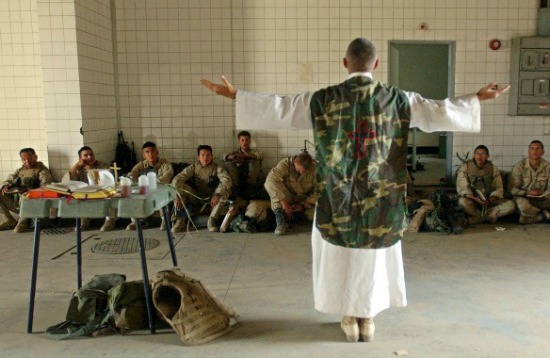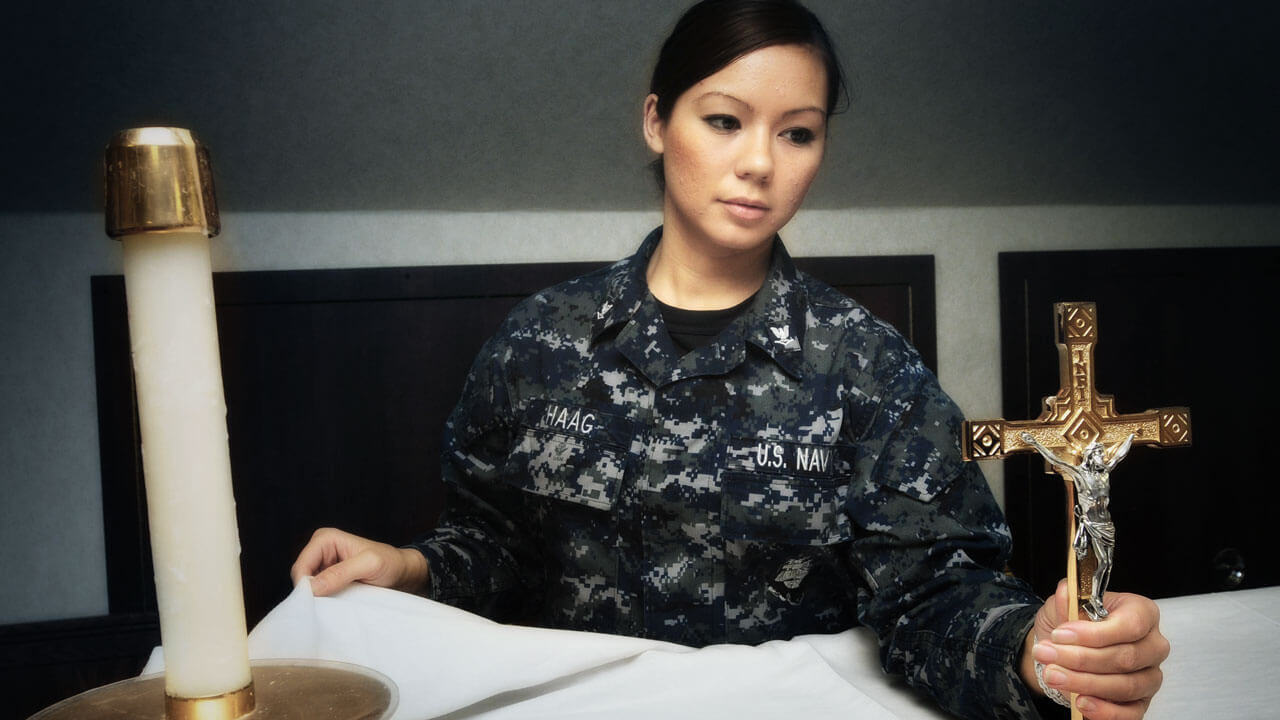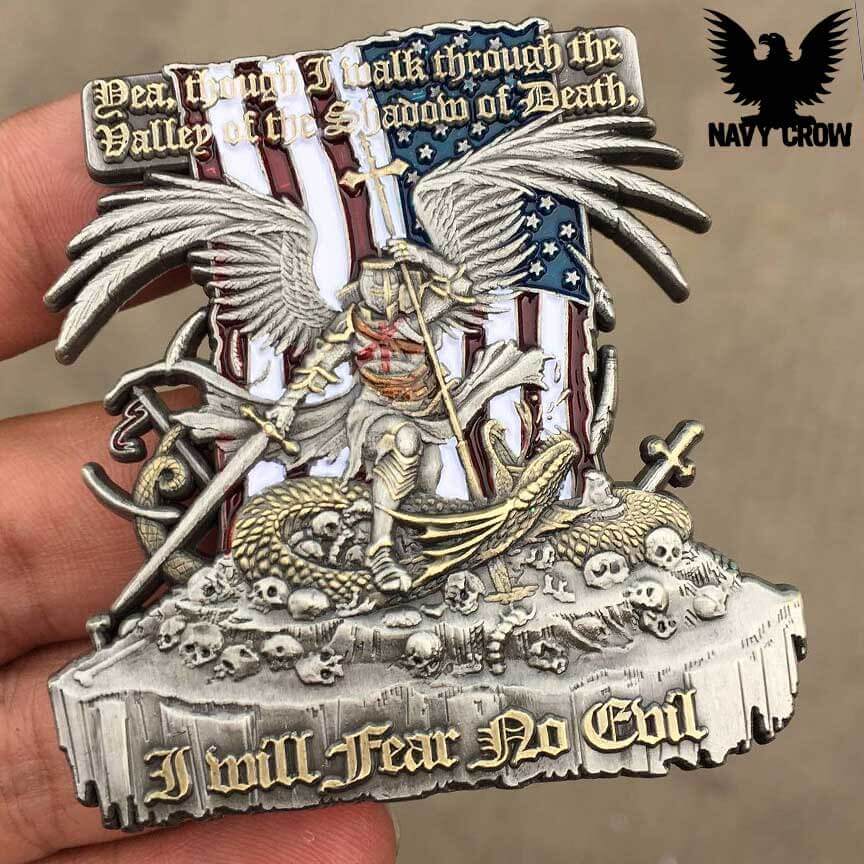Religion in the military is a touchy issue.
Americans are proud of the separation of church and state. Unfortunately, we haven’t always gotten it right. Beliefs run deep, and it’s often difficult to separate our beliefs from our legislation.
The military, however, is pretty damn good at it.
As a Sailor and a lifer, this writer can tell you the Navy is very good about reinforcing the importance of keeping your religion personal. Is this the right way to go? Does the military encroach upon your right to worship? Is it difficult to be religious and a Sailor?
Let’s start with some facts, provided by the Military Leadership Diversity Commission: throughout the military, there are 98 different religions service members identify with. 26.3% of the military identify as having no religious preference, and 70% say that they would trust their fellow troops regardless of their religious beliefs.
So how do our religious beliefs factor into our day-to-day life? There seems to be a prevailing theory that the military is run like an elementary school, that is to say, that you leave it at the door and pick it up on your way out. This simply isn’t true.
As a religious service member, you are allowed to worship however you see fit. Military chaplains are trained to perform multiple types of services regardless of their own beliefs. A Catholic chaplain may administer Jewish services, or facilitate Muslim worship. This is an act of necessity: on a warship with 300 sailors, there simply isn’t room to have five or more chaplains. In fact, chaplains are not permanently assigned to small ships like destroyers or cruisers. Often a chaplain will find themselves on the same ship for months during a deployment when religious services are difficult to attend.
There are things that can keep you from worshiping, however. The Navy is very proactive about ensuring your ability to attend services, but duty comes first. You can’t be stopped from attending services because someone needs you to sweep a parking lot, but if you’re standing watch, there’s no one to replace you, and you’re unfortunately not getting off watch.
There are also things you can’t do. Religion, by and large, is kept out of the workplace. Nobody should be trying to convert anyone else to their religion, nor should they badmouth other religions or commit religious offenses against other people deliberately.
If your religion requires a specific diet, such as not being able to eat pork, alternative food choices are provided. I have never in ten years seen a meal where pork was the only option, even when supplies were extremely low. The military enforces the concept of multiple food choices for religious accommodation very strictly.
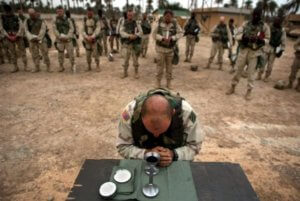 In my experience, the military is Christian by default. This makes sense since almost 60% of the military identifies as a Christian denomination. During many ceremonies, a chaplain will deliver an invocation, during which you will be told to bow your head in deference during a Christian prayer. Technically, this is part of a military ceremony and you’re supposed to do it. In practice, nobody is willing to touch the issue of “forced prayer” if you choose not to bow your head during a very much Christian prayer.
In my experience, the military is Christian by default. This makes sense since almost 60% of the military identifies as a Christian denomination. During many ceremonies, a chaplain will deliver an invocation, during which you will be told to bow your head in deference during a Christian prayer. Technically, this is part of a military ceremony and you’re supposed to do it. In practice, nobody is willing to touch the issue of “forced prayer” if you choose not to bow your head during a very much Christian prayer.
Further, if a Chaplain is onboard, he will deliver a prayer over the 1MC most nights. You are by no means obligated to observe this prayer, it is simply for the crewmembers who are Christian. You will not hear Jewish prayers or Muslim calls to prayer throughout the day. This is simply because there aren’t as many people of those religions for a given crew.
Further, if you notice any infractions against your religious freedom, there are organizations you can submit complaints to. You should always use your chain of command. If you have a Chief who isn’t allowing you to pray because he’s Christian and doesn’t believe you should pray as a Muslim, report the issue to your Division Officer. Take it to the Commanding Officer if necessary. If you don’t trust anyone in the military to deal with it, you can also submit a complaint to the Military Religious Freedom Foundation. As the name implies, they’re a civilian watchdog group that ensures that every service member has a right to their religious beliefs.
In all, you have every right as a service member to be religious. You also have every right not to be. On the other hand, if you think your religious beliefs will prohibit you from doing your job, the military isn’t for you one way or another.
You can be proud of your religion in the military. We here at Navy Crow sure are.




